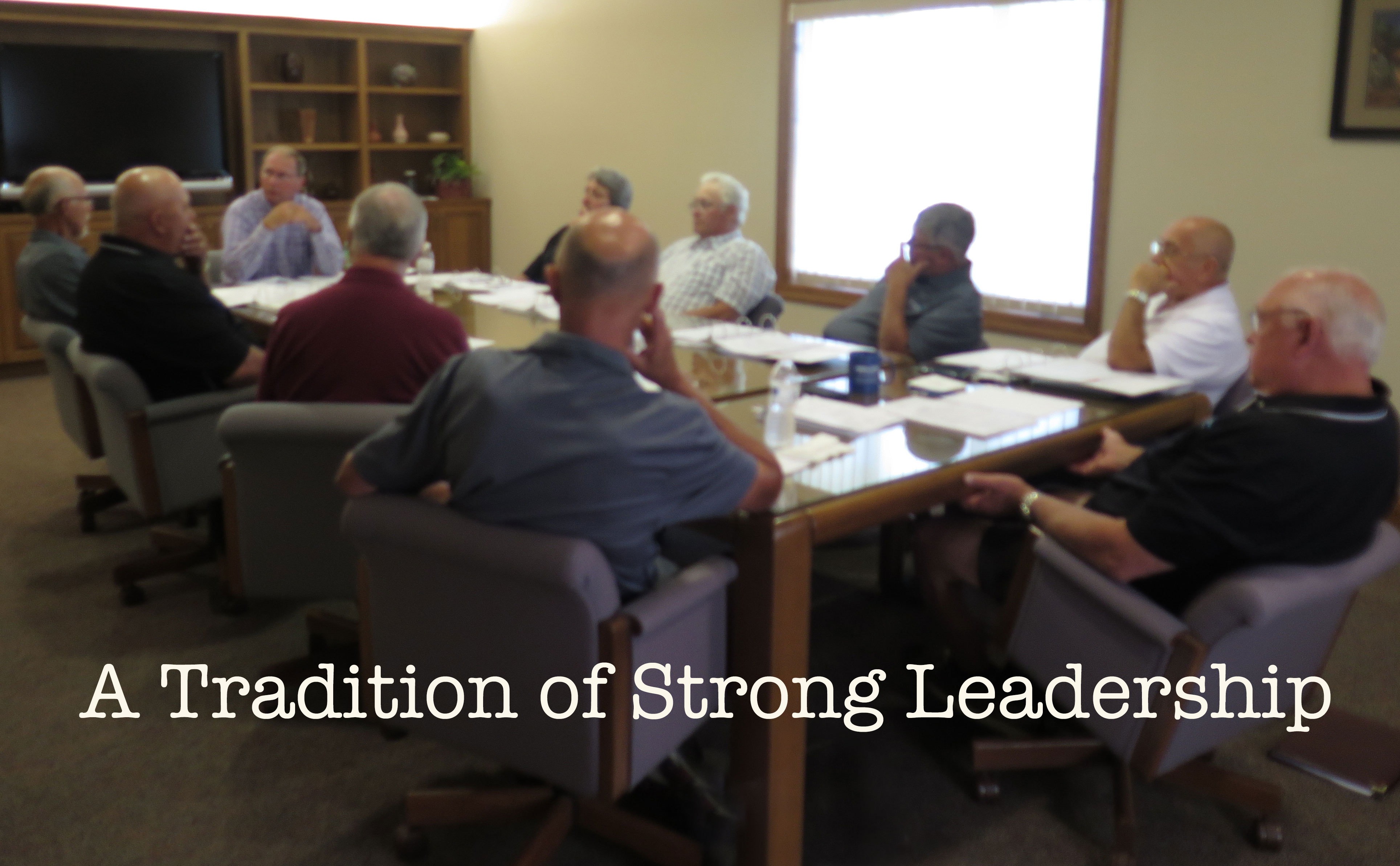
A vision planning meeting held in 2016 by the Forward Mutual board of directors
By HOWARD WIEDENHOEFT
When Watertown Mutual Insurance Company and Ixonia Mutual Insurance Company were founded their boards of directors served very different purposes than they do today. They managed the day to day operations of their mutuals. They acted as agents selling policies and they adjusted all the claims. Each board met after the January annual meetings to elect officers. They met again in December to close and audit the books. They also met for special meetings when it was necessary to levee assessments or determine payment of claims.
Assessments
Watertown Mutual continued this practice until 1901, when it changed to an annual assessment. The board met in early September and estimated the amount of money the mutual would need for the next year’s claims. They based this on the current treasury balance and would levee an assessment to policyholders for that amount to be due on November 1. The board would call a special meeting only if they needed additional funds for claims or another issue arose.
In 1925, Ixonia Mutual also began practicing an annual assessment. Each autumn, board members built assets with annual assessments in order to ease the effect of a large loss year. At the 1930 annual meeting, Ixonia Mutual members voted to invest their assets and earn interest. In the first year of investment, the treasurer reported $70.12 of earned interest from $4,000. On the other hand, Watertown Mutual did not report an interest income until 1937.
What constituted special meetings?
The mutuals held special meetings to levee assessments. On other occasions, unexpected events required explicit decision-making. One example was a meeting Watertown Mutual’s board held on March 10, 1931. The secretary requested that three individuals, a Mr. Louis, Mr. Borck and Mr. Duckert, be present at the meeting in regards to their involvement in a marsh fire. According to the minutes, on March 2, on what must have been a nice, dry, spring day, the men each set fire to their marshes. As they stated, the wind turned and their fires got away from them. They spread to neighboring farms and four Watertown Mutual members lost hay in the mishap. After listening to each of the men, the board agreed to pay a total of $265 to the four members for their loss of hay. The gentlemen who started the fire were not required to repay the mutual, as the directors decided it was an accident and they did their best to stop the fire.
Changes with the times
Today, Forward Mutual’s board of directors serve a different role. Because the mutual’s day to day operations are run by a highly professional staff, its board of directors now focus on its direction, its financial security, and its course into the future. The board meets every other month to keep abreast of the mutual and its industry.
Forward Mutual is blessed to have a firm foundation of leadership!
Read more!
Comparing the Capitalizing of Two Early Mutuals
Supporting Dairy in the Late 1800s
1879 Early Challenges for a Young Mutual
Ixonia Mutual’s First $1000 Loss
1885 A Year of Neighbor Helping Neighbor
Taxes, War and the English Language
Supporting the Community’s Fire Protection
Board Directors and Their Meetings
Standardization of Wisconsin Mutuals
Of Electricity, Radio and Foxes
Our Annual Meetings Over the Years
How a Major Disaster Affected Extended Coverage and Reinsurance
Surviving the Big Dogs in the 1960s
Introducing Agents to the Mutuals
Establishing Confidence in Financial Strength
The 1990s, Advancement and Angst
Ixonia Mutual and Watertown Mutual Merge and a New Company is Formed